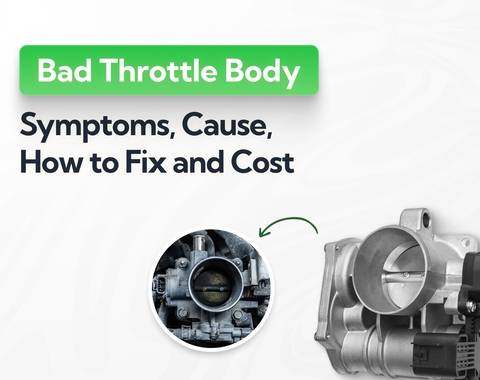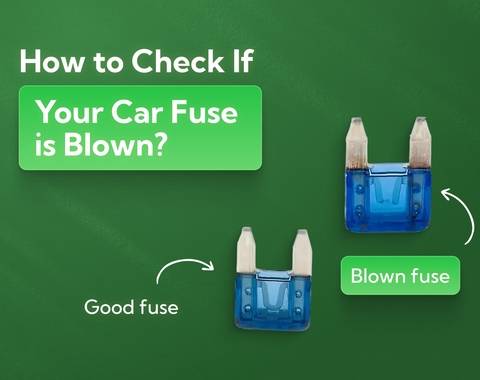Scrap Car Scams in the UK: Warning Signs to Avoid
Scrapping your car? You’d be surprised how many people get caught out. From fake ATFs to illegal cash deals, scammers target drivers all across the UK. This guide exposes the most common scrap car scams and shows you how to protect yourself, stay compliant and get the best price from a DVLA-recognised service.
Last updated: 17th October, 2025
Award-winning CEO driving growth and social impact across automotive, recycling, and technology-led enterprise platforms.
Listen to this story
Scrapping your car should be simple. You get a quote, arrange collection and hand over the keys. Job done.
But it’s not always that straightforward. Across the UK, we’ve seen thousands of drivers fall victim to scrap car scams that leave them out of pocket, legally liable and even unknowingly involved in criminal activity.
But most of these scams are completely avoidable if you’re prepared and know what to look for. Whether you're scrapping a non-runner, an MOT failure or just trying to get rid of an old banger, you need to know how to do it safely and legally.
This guide breaks down the most common scrap car scams in the UK and how to avoid them.
What's in this article
- 1. How scammers target drivers who want to scrap their car
- 2. The role of DVLA and licensed ATFs in preventing fraud
- 3. Common types of scrap car scams
How scammers target drivers who want to scrap their car
Scammers know most people scrapping a car just want it gone fast, easy, and ideally for a decent price. On top of that, lots of drivers don’t know the full legal process behind scrapping a vehicle. They’re unfamiliar with things like ATFs, V5C requirements and Certificates of Destruction.
Scammers rely on that knowledge gap and use the urgency to their advantage. They’ll pose as legitimate buyers, advertise on classified sites or mimic trusted online brands. Some even use logos, taglines and website layouts that look nearly identical to real scrap companies.
If you’re not careful, you’ll end up handing over your car, your logbook and your legal responsibility to someone who disappears the second they’ve got what they want.
The role of DVLA and licensed ATFs in preventing fraud
The DVLA plays a central role in making sure vehicles are scrapped legally. But they don’t collect cars themselves. That job is done by Authorised Treatment Facilities (ATFs).
An ATF is a government-licensed scrapyard that meets strict environmental and legal standards. By law, only an ATF can issue a Certificate of Destruction (CoD) — the document that proves your car has been scrapped properly and you're no longer responsible for it.
When you scrap your car through a licensed ATF, the DVLA is automatically notified, you get a car tax refund and your registration is closed. That protects you from future fines, taxes and liability if the car ends up back on the road illegally.
Common types of scrap car scams
There are four kinds of scrap car scams we're seeing around the UK today: fake dealers posing as ATFs, dealers offering cash payments, real dealers offering too-good-to-be-true quotes that they later slash and buyers illegally reselling scrap cars instead of destroying them.
Fake scrap dealers pretending to be licensed ATFs
This is one of the most widespread scams and it’s the easiest to fall for. Unlicensed dealers pose as legitimate Authorised Treatment Facilities (ATFs) to win your trust. They’ll often:
- Use professional-looking websites
- Claim to issue a Certificate of Destruction
- List fake company registration numbers
- Even copy branding or names from real ATFs
In reality, they’re not registered with the Environment Agency at all. And once they’ve collected your car, you have no guarantee it will be scrapped or even removed from the road.
Dealers offering cash payments (illegal under UK law)
Since 2013, it’s been illegal to buy scrap metal (including cars) with cash in England and Wales, under the Scrap Metal Dealers Act. Scotland and Northern Ireland have their own respective laws banning cash payments on scrap cars.
All payments must be made via bank transfer or cheque. This law exists to make scrap transactions traceable and reduce metal theft.
But some rogue dealers still offer cash-in-hand deals to attract sellers who want quick money. It’s a common tactic used to skip paperwork and avoid being held accountable.
You might get paid, sure, but you won’t get a Certificate of Destruction, your vehicle may not be scrapped and you’re dealing with someone who’s already breaking the law.
Enticing quotes that drop after collection
Not all scrap car scams are outright illegal. Some are just deliberately shady.
We’re seeing a lot of scrap yards and online buyers use bait-and-switch tactics these days. The dealer gives you a quote that’s well above market value, promising free collection and fast payment. It sounds great, so you book it in.
Then collection day arrives… and the excuses start.
- “Oh, that quote is only valid if the car’s in perfect condition.”
- “Scrap metal prices actually changed last night.”
- “Actually, there’s a £60 collection fee.”
Suddenly, your £300 quote drops to £150 after they’ve already loaded the car. You’re left in a pressured situation where most people just accept the lower offer because they’ve already invested so much time and energy into the process.
Every scrap car quote will be subject to change if you’ve actually misrepresented its condition. But some dealers do this as standard operating procedure because they know most drivers will be too busy or exhausted to fight it.
What the experts say

Anthony Sharkey
Cars “scrapped” but resold illegally instead of being destroyed
This one’s the most dangerous because it can land you in serious legal and financial trouble.
When you scrap your car, there’s a full legal process that covers what happens to it and how it’s disposed of. Scammers bypass this process entirely. They pose as legitimate buyers, collect your vehicle, and either:
- Strip it for parts
- Ship it abroad
- Or worse, clone it and sell it on using your details
If it racks up speeding fines, parking tickets or is involved in a crash, it’ll all come back to you as the last registered keeper, since there was no formal process removing your responsibility.
Red flags to consider when scrapping your car
Scammers and shady dealers all tend to have one thing in common: they avoid transparency. They also tend to rush the sale because they know that if they don’t move quickly, they’ll be found out.
Here are the four red flags that tell us right away when a scrap buyer’s not legit:
Scrap yards that refuse to provide a Certificate of Destruction
Any legitimate ATF will issue a Certificate of Destruction within a few days of scrapping your car. It’s a critical and non-negotiable aspect of scrapping your car that the ATF must do for their own compliance. If they dodge the topic, say you “don’t need one” or claim it’s optional, they’re scamming you.
Lack of company details, reviews or official registration
If a company has no physical address, no company number, no reviews and no traceable contact info take that as a major red flag. Legitimate scrap dealers are registered with the Environment Agency, have a Waste Carriers Licence, and show up in business directories or online review platforms.
Requests for cash payments instead of a bank transfer
Like we’ve already made clear: cash payments are illegal for scrap cars in the UK. Any dealer offering cash is trying to avoid traceability, which in itself is worth questioning. Make sure they mention “payment by bank transfer or cheque only” in their service description.
Overly aggressive collection or rushed contracts
Some dealers try to pressure you on the spot (on collection day in particular). They might:
- Show up early and demand immediate handover
- Insist you sign vague paperwork you haven’t read
- Act annoyed when you ask questions
- Rush the process before you’ve even agreed on the final price
That kind of behaviour is a tactic. They want to stop you from noticing the red flags. Don’t fall for it.
How to protect yourself from scrap car scams
Protecting yourself from scrap car scams ultimately comes down to doing your due diligence and refusing to rush the process. If a deal feels off, it probably is, and taking a few extra steps can save you from serious problems later.
Always use a DVLA-approved Authorised Treatment Facility (ATF).
Only an ATF can legally scrap your car and issue a Certificate of Destruction. These facilities follow strict rules around environmental disposal and DVLA reporting.
When you scrap your car online with us, we eliminate all of the risk here. We’ve built a nationwide network that’s exclusively made up of licensed ATFs, so you can be 100% certain your car’s being properly disposed of and that you’ll get your CoD.
Verify scrap yard registration with the ATF public register.
The easiest way to make double sure you’re dealing with an ATF is to check the public register published by the governing body that’s responsible for environmental regulations where you live.
In England, you’ll use the Environment Agency’s online register. In Wales, there is a separate register through Natural Resources Wales. The Scotland ATF register is done through the Scottish Environment Protection Agency (SEPA). And the Northern Ireland register can be found through the Department of Agriculture, Environment and Rural Affairs (DAERA).
Get multiple quotes before agreeing to scrap.
One of the best ways to spot a scam is to compare offers. If one quote is significantly higher than the others, there’s often a catch, be it hidden fees, sudden price drops or false promises. Reputable platforms offer upfront quotes based on your car’s condition, and they won’t pressure you to accept on the spot.
Getting an instant car valuation through our platform is the perfect place to start. Since we have sister companies that deal with garages and motor traders in addition to a nationwide partner network, our algorithm is uniquely able to factor in reusable parts in addition to basic scrap value.
You’ll get a detailed video breakdown as well, so you’ll know exactly why your car is worth what it is. That puts you in the strongest possible position to make an educated decision when it comes time.
Keep records of DVLA notifications and CoDs.
The dealer will notify the DVLA on their end, but it’s still your responsibility to do the same on yours. You have two options: use your V5C logbook or the DVLA’s online notification tool to report the car as sold or scrapped.
Save confirmation emails, keep a copy of the Certificate of Destruction and note the date and name of the company that collected the car. If anything goes wrong later, you’ll have the paperwork to prove you followed the law.
Legal consequences of scrap car fraud
The worst part about car scrappage scams isn’t even that you lose money from them. It’s that they occasionally lead to serious legal trouble, for both the people running them and the car owners who unknowingly get caught up in them.
Fines and penalties for scrap yards breaking the law
Scrap dealers who operate without the proper licences, issue fake paperwork, or pay in cash are breaking UK law — and the penalties are serious.
Under the Scrap Metal Dealers Act 2013, offenders can face:
- Fines of up to £5,000 for cash payments
- Unlimited fines for operating without a licence
- Criminal charges for fraudulent activity and environmental breaches
Enforcement is handled by local authorities, police, the Environment Agency and Trading Standards. Rogue dealers get shut down, fined and prosecuted.
Risks for owners if cars are not properly deregistered
If your vehicle isn't properly deregistered with the DVLA, their system still shows you as the registered keeper. That means you’re still legally responsible for it even if it's long gone.
That means you could face:
- Fines and penalties for unpaid road tax or insurance
- Speeding and parking tickets issued to the vehicle
- Civil liability if the car is used in a crash or criminal activity
In worst-case scenarios, your name may be linked to a cloned vehicle or illegal export, after which you’ll need to prove you were the victim of a scam.
How victims of scrap car scams can report them
If you suspect you've been scammed, report it to:
- Action Fraud (the UK’s national reporting centre for fraud and cybercrime)
- DVLA for internet scams and phishing
- Trading Standards, if a business misrepresented itself or broke consumer laws
- The Environment Agency, for issues with illegal or unlicensed waste handling
Role of police, DVLA and Trading Standards in enforcement
The abovementioned agencies work together to fight scrap car fraud in the UK:
- DVLA ensures vehicles are deregistered and issues CoDs through licensed ATFs.
- Police investigate criminal activity, from vehicle cloning to illegal exports.
- Trading Standards tackle false advertising, misrepresentation, and consumer rights violations.
- The Environment Agency (or respective agency in Wales, Scotland or Northern Ireland) monitors waste licences and penalises illegal scrap yards.
While enforcement isn’t perfect, these organisations are the ones you’ll ultimately rely on for protection against fraud.
The bottom line
From fake ATFs and illegal cash deals to last-minute price cuts and dodgy resales, the risks are real. And if you're not careful, you could be left out of pocket or still legally responsible for a car you thought was gone.
But the good news? Like we’ve already said, every one of these scams is avoidable.
The safest way to scrap your car is to do it online with us. We only work with licensed ATFs, we handle all the paperwork (including DVLA notification), and we guarantee you’ll get a genuine Certificate of Destruction. And the price you see quoted is the price we’re prepared to pay you on collection day.
Frequently asked questions
Start by checking if they’re registered with the environmental regulator for your part of the UK. In England, that’s the Environment Agency. In Wales, it’s Natural Resources Wales. In Scotland, it’s SEPA. In Northern Ireland, it’s DAERA.
A legitimate dealer should also hold a valid Waste Carriers Licence. If they can’t prove either, don’t use them.
Yes. Under the Scrap Metal Dealers Act 2013, it’s illegal to accept cash payments when scrapping your car in the UK. Scrap yards are required to pay by bank transfer or cheque, and anything else is breaking the law.
If you don’t receive a Certificate of Destruction, the DVLA won’t know your car has been scrapped. That means you remain legally responsible for it. You could still be liable for road tax, fines and even criminal offences if the car ends up back on the road illegally.
The DVLA doesn’t directly approve scrap yards, but it only recognises Authorised Treatment Facilities (ATFs) for official scrapping. You can check if a scrap yard is an ATF by searching the public register on the Environment Agency website (or the equivalent in Wales, Scotland, or Northern Ireland).
If they’re not listed, they can’t issue a Certificate of Destruction, which means your vehicle won’t be deregistered properly.
Sometimes it's shady, like a bait-and-switch tactic where they promise a high price and knock it down on the day of, hoping you'll accept under pressure. But there are also legitimate reasons.
If you didn’t disclose that the car was a non-runner and they had to bring special equipment, or if you gave false details about the condition, missing parts or damage, the price will have to be adjusted fairly. That’s why being honest during the quote process is so important.
If you think you've been scammed when scrapping your car, your first step is to contact the DVLA to check if your vehicle has been properly deregistered. If it hasn’t reported the issue to Action Fraud, the UK’s national centre for fraud reporting.
You should also inform Trading Standards if a business misled you, and the Environment Agency (or Wales/Scotland/Northern Ireland equivalent) if you dealt with an unlicensed operator. If your vehicle is still in your name or has been used illegally, notify your local police as well.
Generally, no. If you’ve handed your car to a licensed Authorised Treatment Facility (ATF) for scrapping, it must be dismantled and taken off the road, not resold as a whole vehicle. However, it’s common for car breakers (many of which are also ATFs) to resell individual parts that are still in good condition, like engines, gearboxes and alloy wheels.
That’s legal and part of the recycling process, but the car itself should still be scrapped and a Certificate of Destruction issued.
You can report scrap car scams to several agencies, depending on the situation.
Action Fraud handles fraud and scam reports in the UK. If the issue involves a business misrepresenting itself or breaking consumer laws, contact Trading Standards as well. And for unlicensed scrap yards or illegal waste handling, report them to the Environment Agency (or SEPA, NRW, or DAERA depending on where you live).
You should also contact the DVLA if your vehicle was not properly deregistered, and the police if you suspect criminal activity.
Yes, tighter DVLA regulations and stronger enforcement generally reduce the prevalence of scrap car fraud, especially when it comes to vehicle deregistration and CoD tracking. But we’re also seeing scammers get more creative.
Unfortunately, as long as there’s money to be made, there will be those who find ways to game the system. That’s why staying informed and only using licensed ATFs is still the best protection.
About Car.co.uk

Share on
Latest news & blogs


